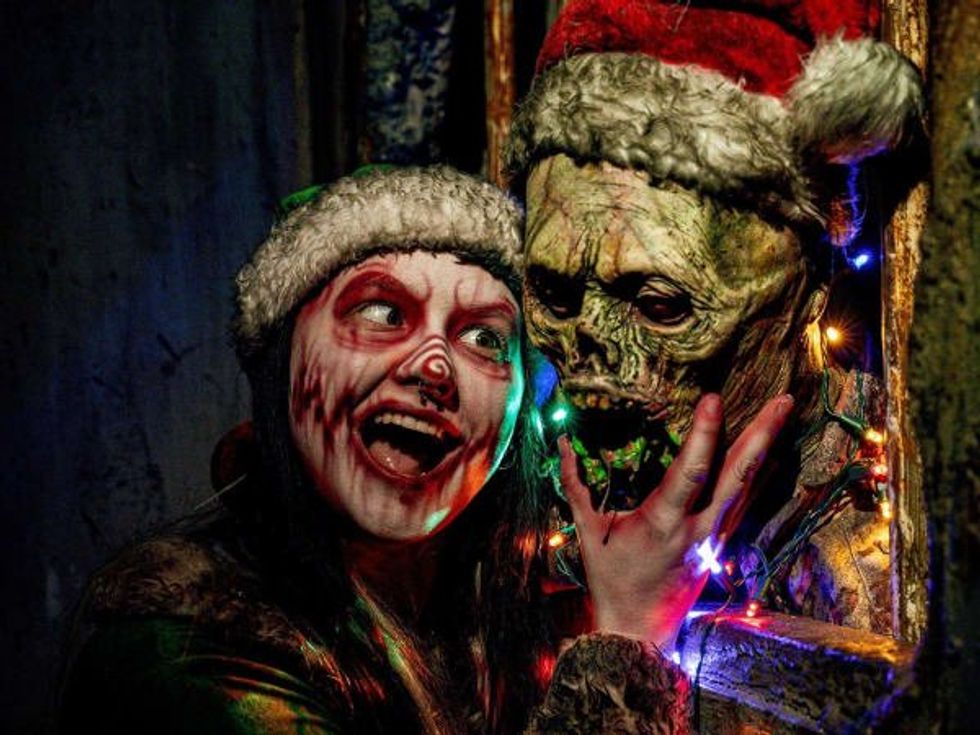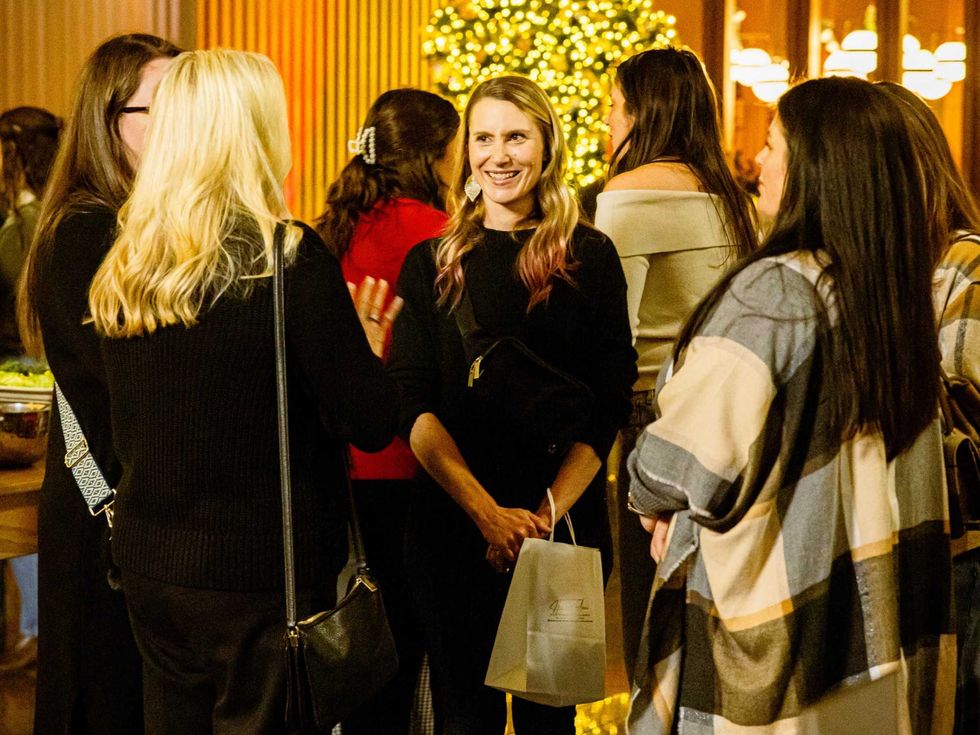In Austin, we often brag that we are the “live music capital of the world.” At least we keep an open mind that there might be another planet out there with more live performances in a given evening. One band helping us stay on top, at least in this galaxy, is the Austin Afrobeat-inspired collective Hard Proof.
Drummer Steve Bidwell credits their origin to an indirect dare that arose when he tried out for the indie folk band Sea Legs in 2008. He then put together some musicians and started meeting “at the most awkward time of the week, noon on Sunday, which weeded out people that weren’t really into it,” he says.
Four years later the band is still going as (soon to be) ten-piece collective. I sat down with Bidwell and his fellow band members Derek Phelps (trumpet), Jason Frey (saxophone), and Joe Woullard (baritone saxophone) to talk about the unique Austin band.
---
CultureMap: How have you guys changed since you first started in 2008?
Joe Woullard: I think everyone has gotten a lot stronger in the band.
"We got to a point where the band was confident with whatever we played, whatever we wrote. We have belief in each other that we can make it sound good."
Derek Phelps: Been working out.
JW: Yeah, we’ve been pumping iron.
Steve Bidwell: Drinking our protein shakes.
JW: I remember back when we started there were lots of questions about what would be our identity as an Afrobeat band. What would be our sound? It’s a good question to have, but you can’t obsess over it too much. You kind of have to do what you do and that provides the answer. We got to a point where the band was confident with whatever we played, whatever we wrote. We have belief in each other that we can make it sound good.
SB: Yeah, I was thinking about that on the way over. We learned how to write for each other and arrange as a band. We got together initially just to play Afrobeat music, but it has long since morphed into our own thing. The influence is definitely there and that’s the wheelhouse we’re working in, but we’re definitely doing our own thing and forming our own sound.
CM: What are the intricacies of working in a band with so many members?
SB: A lot more heads to keep track of.
Jason Frey: More schedules to work around.
SB: We all play in at least one other band, if not three or four other bands. Plus there’s day jobs, families, puppies and kittens and things like that.
JF: I think on the other side, there are nine people in the band…
SB: As of June 20 there will be ten people.
JF: Ten people in the band, contributing good things and writing. Almost everyone’s brought one song to the group.
CM: If someone wanted to get into Afrobeat, what would you suggest they listen to?
DP: Fela Kuti for sure. That’s where it started. Ebo Taylor is a good one. Modern guys like Budos Band are fun. Nomo is doing some different stuff.
JW: Antibalas has a new album coming out — their first in five years.
SB: To clarify, in case some Nigerian cop is reading this, Afrobeat is more of a 1970’s Nigerian style. It usually has vocals. We’re all instrumental, thusly one of the reasons we just go by Hardproof and not Hardproof Afrobeat when we can.
There is a really great Pitchfork compilation called the Africa 100. It’s just 100 random tracks from around Africa, but the pop and funk within the continent is vast. I always say there are as many styles of pop music as there are spoken languages over there, and there can be 80 spoken languages just in Nigeria. My dad got me a box set of Afropop. It was really good, but it was 18 CDs long and it didn’t even scratch the surface.
"I always say there are as many styles of pop music as there are spoken languages over there, and there can be 80 spoken languages just in Nigeria."
We’ve tried to take bits and pieces. This is going to sound pretentious as hell, but we do more of a “pan-African” style.
CM: You’re all in so many other projects, what about Hard Proof is fulfilling to you as a musician?
SB: Playing in nothing but straight ahead jazz or loud rock music, I hadn’t seen anybody just dance at one of my shows unless it was a wedding gig and that doesn’t count. Dancing to original music — I just hadn’t seen that in forever. That’s refreshing and I always get a kick out of that.
JW: I’ve liked Afrobeat for quite some time. The first time I heard Fela Kuti, and it was kind of hard to get recordings at that time, it appealed to me because there are some very complex things going on. There are a lot of influences that I personally hold close: jazz, funk, and even classical to a certain extent. I thought it was amazing how Afrobeat could meld those things and not compromise the integrity of any of them. It’s seriously funky music, but it can be seriously heavy too. Being able to do all those things at once, it’s a great thing.
CM: Being an Afrobeat band in Texas, what kind of lineups do you get put on?
DP: It changes a lot.
SB: Mohawk will have us and we’ll get paired with an indie band and they've also had us on a soul line-up. Either will work out pretty well I usually find. Hotel Vegas keeps putting us together with soul bands and that works out well. We also played with Stooges Brass Band and that kicked ass.
JF: We’ve done some other world-type stuff. What’s nice about this band, since we pull from so many different styles and so many influences, it can get spread out where people just like to dance to it. There are a lot of different types of people that like to see us.
DP: Nice people and not nice people.
SB: It seems to bring the nice people together.
JF: That leaves a lot of room for what kind of bill we get to play on. If you like moving around and watching live music, you’ll probably enjoy us.
---
If you’d like to move around with Hard Proof you can check them out this Friday at the Continental Club with the Greyhounds. They’ll also be playing June 8 at the Sahara on the east side.



